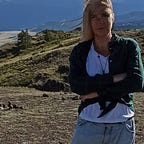Notes on Being an Ex-Pat for “Finis Origine Pendet” in the Phillips Exeter Academy Spring 2016 Bulletin
Thanks to Bruce Bernstein for demanding it.
I never considered myself an “ex-pat”. Initially, the term conjured up images of Hemingway, dissent, vigorous debate fueled by morning coffee in the afternoon and alcohol well into the night. There certainly were vodka fueled all night sessions, but there was no coffee to kick start the day in Siberia 1992 and it was a time of supreme optimism. A few years later the meaning morphed into a person conducting a project with a US government supported “ex-pat package” of benefits. This, too, did not apply to me because while I started getting funding from US government supported institutions, there was no “package”. I was that rare creature in international development, someone who started to make a living by expanding what they were already doing as a volunteer.
That said, as an American living abroad, there are three major aspects to lessons learned. The first is expected, I learned a lot about Russia. On the cultural front, some differences were obvious, like taking shoes off when you enter a home. Others, you luck out and stumble onto such as my coupe mate on the Trans-Siberian in January 1992, Democratic Russia was 1 month old. Baba Masha was 60 but looked 80 and explained there are only two words you need to know to understand Russians, “terpelivwi” (patient) and “peredjit” (to live through it). These continue to serve as both brake and ballast for Russia in its ongoing transition. Some cultural highlights you learn the hard way, like there is a reason I should not have skipped over the names of berries and mushrooms in Russian language class and that calling someone a “friend” implies an almost sacred bond. While decidedly different from the pre-Clinton America I left, as a child of the 50’s the social scene in perestroika Russia was very familiar with its rigidly defined and accepted gender roles, covert homosexuality, alcohol during the day (although straight shots of vodka instead of the double martini), smoking and a transcendent appreciation for the victory over fascism (only in Russia it required the loss of 27 million people and left no one I ever met untouched). Within that construct there were differences such as all women worked, but jobs that were primarily female (doctors and teachers) were paid less. On the plus side, despite the remarkable vision of high heels maneuvering through 3 feet of snow, there was never any talk of diets or saying “no” to a piece of cake.
The second aspect of lessons learned as an American living abroad was unexpected. I discovered, as I have come to realize must have been true for my countrymen hanging out in Parisian cafés in the 20’s, the clarity you get about America when you don’t live there. Like your family once you are on your own. They start to emerge as people with gifts and flaws no greater or lesser than others. Understanding them more does not mean you love them less, it just means you become smarter about picking your battles. In fact, I think I have learned more about America than Russia during my 24 years living in Siberia.
The remaining lessons are what I learned about myself. A lifetime trajectory that has taken me from Cold War “duck and cover” drills in Greenwich Connecticut to promoting citizen participation throughout a democratic Siberia taught me it is not foolish to be an optimist. I learned that the bonds of family and friendship can endure a 24 year absence and that the occasional -40 degrees is worth it to spend 4 months a year skiing through snow covered birch tree forests. I discovered that the very real differences between me and the Russians, Kazakhs, Kyrgyz, Armenian, Tadjik, Uzbek and Turkmen I have worked with were less important than a shared desire that our children live in dignity and peace. It is the same full moon that shines over all of us. Finally, my success as an activist in Russia confirmed the universal nature of the values I was raised on. Foremost among them, to quote Aretha Franklin, is R E S P E C T. Only it is the words that follow that provide the key, “find out what it means to me”. Which brings me back to Exeter and the Harkness table where I first learned how to show respect for people by not just listening, but hearing them. That is why, every week, I get a thrill and hope for the future as my students and I recreate that circle at Novosibirsk State University.
